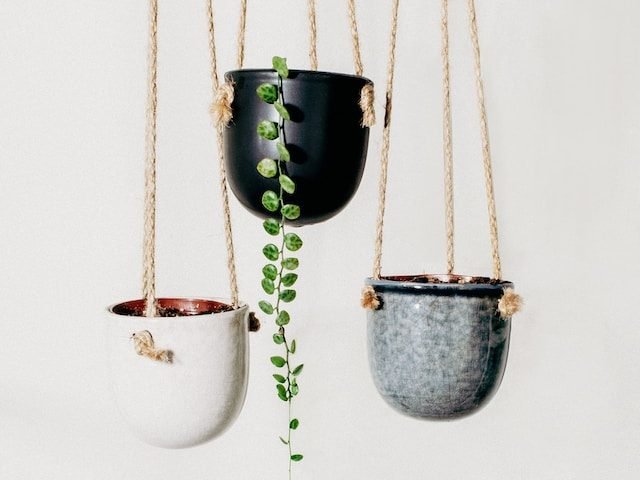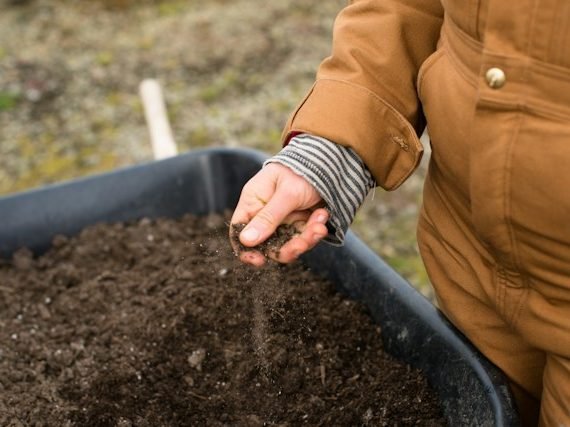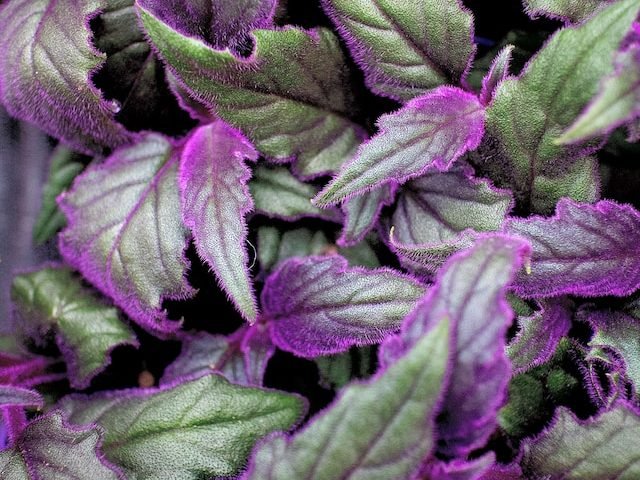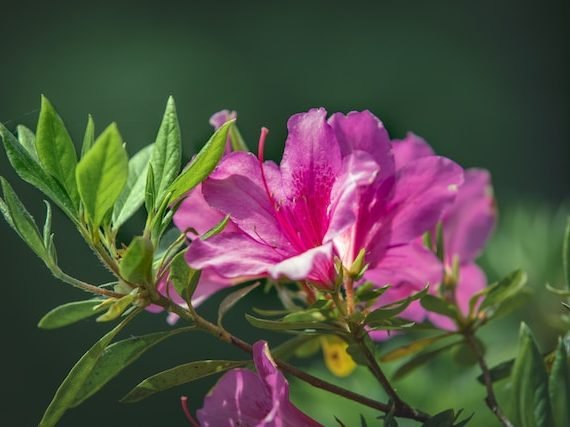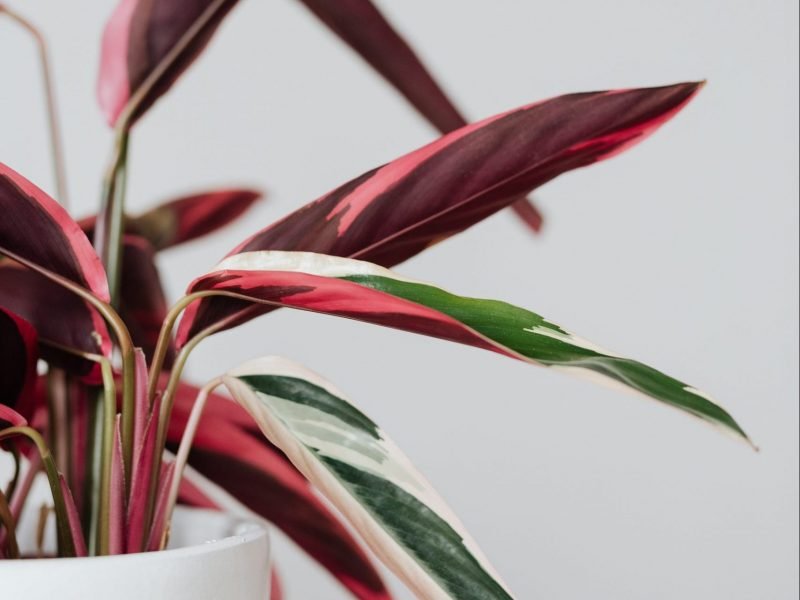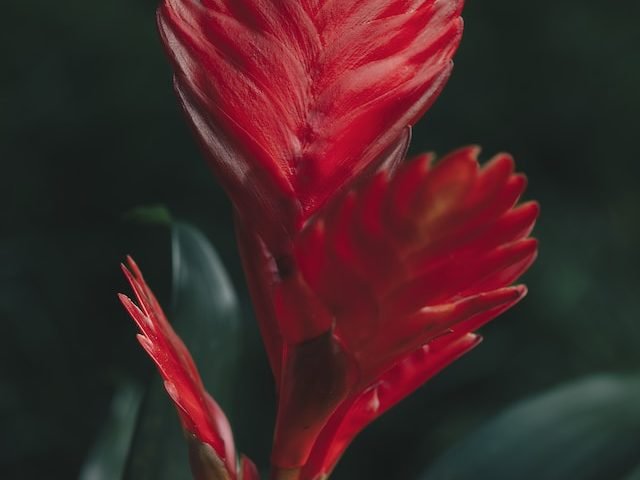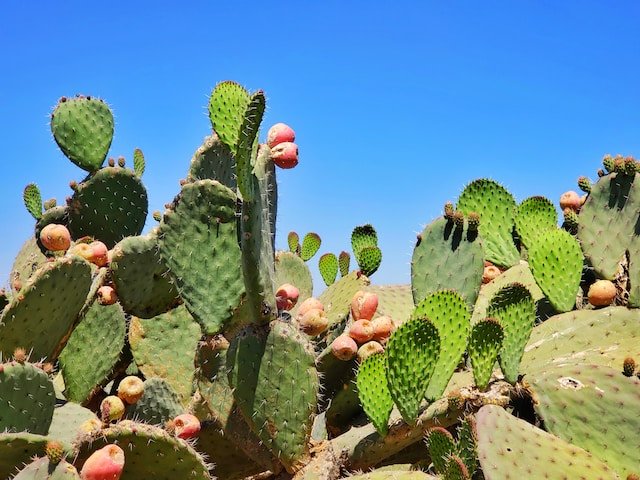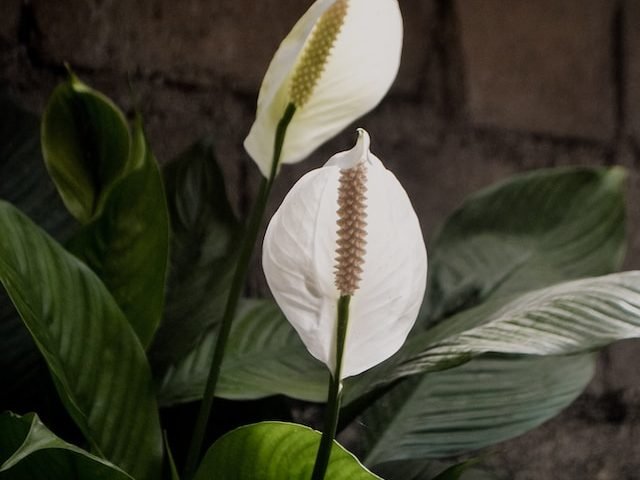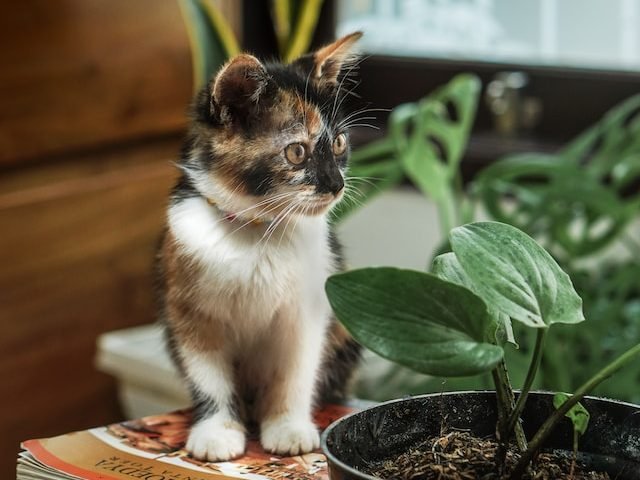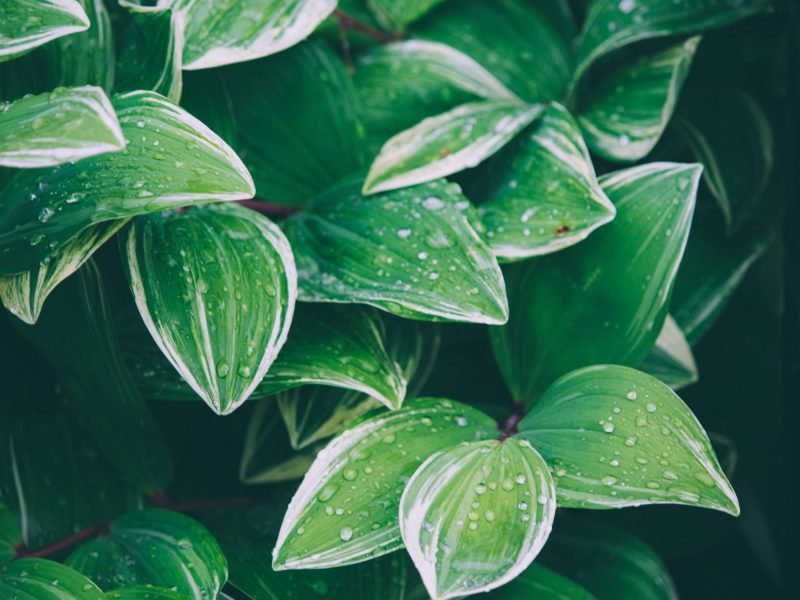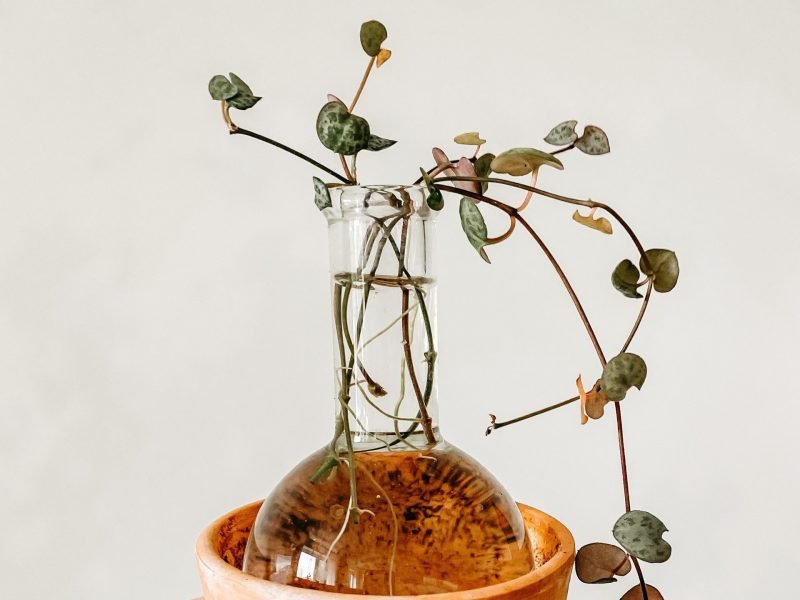
String of Hearts Plants (Ceropegia woodii) are some of the most unique and delicate houseplants. Luckily for all of us plant lovers, they are super easy to propagate and success rates are much higher than other plants if you have a strong and healthy mother plant. We are going to guide you through the process, letting you know and the various methods, a step by step guide for each, what tools you will need and any problems you may encounter along the way.
Why propagate a String of Hearts?
Before we get started you might be wondering why it’s beneficial to propagate your plant? Well here are some of the main reasons:
Create more plants for free!
Propagating your plant will multiply your plant collection without needing to spend any more money! They also make great gifts for friends and family if you already have enough houseplants.
Save a dying plant
If you accidentally overwatered (which is easy to do), over-fertilised or mistreated your plant and it has started to die, sometimes the best way to save it is by taking the healthy stems and propagating them to create new healthy plants.
To make your String of Hearts Plant fit its environment.
These plants can grow pretty long and if they start to hit the floor or become inconvenient in your space, then giving them a trim and propagating those stems is a great way to stop them from going to waste.
What tools will I need to propagate my String of Hearts?
Let’s start off with the easy part, what you need to propagate your plant. It’s important to make sure you have everything ready before taking any cuttings.
Healthy and mature String of Hearts plant
Clean, sharp scissors/shears
Spare pot(s) with and without drainage holes
Fresh soil and water
Newspaper or plastic sheet if you are propagating indoors
Rooting hormone (optional)
Gardening gloves (recommended)
How to propagate a String of Hearts using stem cuttings
This is the main method as it’s suitable for all maturities and lengths. It’s also really easy to get right as you can create several new plants just by taking a short vine cutting.
Locate some healthy vines
When taking cuttings to propagate your String of Hearts, you need to check for one important thing; a node. Without it, you will have a very slim chance of success. A node is where two leaves have broken out from the vine and where roots will start to grow from.
Make the cut
Use your clean scissors to cut off several vines, making sure each includes one or more nodes.
Fill up your container with water
Next, you want to fill up a glass with fresh temperate water to place your cuttings into. If possible, use filtered water or collected rainwater to avoid any sensitivity to fluoride but don’t worry too much about this if inconvenient.
Place your cuttings in water
Before placing your cuttings in water, cut off the leaves on the lowest node. These will be sat in water for several weeks and will rot so better to get rid of them now. Then pop your cuttings into the water, making sure that the lowest node is submerged.
Place your glass in bright but indirect sunlight. Intense light will damage the cutting. You can use a light meter to determine where to place your cuttings. We recommend this one from Amazon.
Change out the water regularly
One of the most important steps in the propagation process is to refresh the water regularly (every 2-3 days is optimal). This keeps the water free from bacteria and stops it from stagnating which is harmful to your cutting. Stagnant water will also start to smell so it’s you’ll notice pretty quickly!
Wait for the roots to grow
Luckily these vine cuttings grow roots pretty quickly so you should start to see two delicate roots pop out from the node after a few weeks. It can be a little unpredictable though and some cuttings will be a lot faster than others. You can use rooting gel to help the roots grow quicker but it’s an optional step.
Plant your cuttings into fresh potting mix
Once the roots on your cutting are a few centimetres long it’s time to pot them into soil. Don’t worry if the roots are still very delicate, this is normal for String of Hearts plants which is why they are so sensitive to overwatering.
We recommend using a high-quality potting mix like this one from Miracle Gro to make sure your cuttings are getting the right mix of nutrients. Carefully place your cuttings a few centimetres into the soil, making sure not to damage the newly formed roots as they will be very delicate. We also like to simply pop the cuttings back into the mother plant so it becomes a little fuller.
Resume usual care
Now that your vines are pot nicely into soil, you can go back to your usual care routine.
How to propagate a String of Hearts directly into potting mix
We wanted to keep this method separate from the water cuttings method as there are a few different ways you can do this.
Choose a vine to propagate
You want to make sure you use a relatively healthy vine. Pests or diseases will persist on any new growth that comes from your cutting.
Decide how you want to grow your cutting
This is where this method gets a little bit different. There are 3 ways you can grow your cutting in soil. Firstly you can loop the vine back into the pot without actually cutting it off. Secondly, you can pop the cutting straight into potting mix once cut off. And thirdly you can lay your cutting flat onto potting mix so that the cutting roots out of more than one node.
Pot the cutting into fresh soil
Whichever way of growing you choose for your cutting, one thing stays the same. It’s important to use fresh, high-quality potting mix. Never reuse old mix from other houseplants as this can transfer pests and diseases that may be lingering in the mix undetected.
You also want to choose a potting mix that is well-draining. Sometimes this comes labelled as succulent mix like this one available on Amazon, other times you can just read the components of the mix to check it has perlite to aid drainage and aeration of the soil. String of Hearts plants are very sensitive to overwatering so this bit is vital.
Find a nice spot for your cuttings to grow
Now that your various cuttings are potted nicely into fresh soil you want to find the right place for them to thrive. Bright but indirect sunlight is what your new cutting needs as intense light will scorch the cutting but a lack of light will stunt any new root or leaf growth.
Be patient!
It may take a long time for your new cuttings to show any signs of new leaves growing from the soil, or it may only take weeks – there is really no way of knowing sometimes. But as long as your vines are given the right care, your propagation should be a success!
How to propagate a String of Hearts using tubers
Locate any tubers
If you look at your String of Hearts plant closely, you should spot a few tubers if your plant is mature enough. These look like small cream balls along the vines of your plant.
Cut off your tubers
Use clean scissors to cut the tubers off the mother plant. Don’t tug or pull at them as this can damage your plant. You can also loop the vine back into the pot so the tuber is touching the potting mix, however, for the sake of creating an entirely new plant we want to go through the method where it is propagated on its own.
Place the tuber into fresh potting mix
Place the tuber on top of fresh moist potting mix, pushing it gently into the soil a little. Never reuse old mix from other houseplants as this can transfer pests and diseases that may be lingering in the mix undetected.
Mist your tubers
You want to keep some moisture in the soil to help your tubers grow roots and prevent them from drying out. The best way to do this is regularly misting the tubers using spray bottles. This way you can control the amount of water it is getting and stop overwatering.
Now all you have to do is wait
Propagating through tubers is much more of a waiting game than other methods. It may take a long time before you start to see any signs of new leaves growing from the soil.
How to propagate a String of Hearts through division of the mother plant
This method only really works if your plant is quite bushy and has lots of vines so that it can form a whole new plant. If you do have a big enough plant that you don’t mind dividing then this method is great for those who don’t want to wait for weeks/months for roots and new leaves to grow. With the division propagation method, you get new plants instantly!!
Take your plant out of the pot
To be able to propagate your plant through division, you need to separate the different vines. This is particularly easy to do with String of Hearts compared to some other plants as they separate easily. The first step is to carefully lift your plant out of its pot, trying not to damage the leaves or root system. These plants are quite delicate so be careful when you’re doing this.
Separate out the vines
You may have to trim off the odd root to detangle the plant but with a little gentle tugging, you should be able to pull the vines apart. Each vine should have its own roots so make sure these are healthy and not mushy. You then want to group the vines together to form new plants. How many new plants, and how bushy each of them are is completely up to you.
Place each section in fresh potting mix
Pop your mother plant back into its original pot (or downsize slightly if you have taken away a substantial amount of the original plant). Then pot your new plant(s) into fresh potting mix. Make sure not to reuse old potting mix from other plants as this can really easily transfer pets or bacteria without you realising!
String of Hearts propagation FAQs
Here’s some answers to the most common questions we get on this subject, hopefully something here can help!
How long will it take for my cuttings to grow roots?
String of Hearts propagation fairly quick and you should expect to see some roots growing after only a few weeks. But it can be unpredictable so just make sure you are giving your cutting the right care and be patient! Using rooting gel can help the root growth speed up.
What’s the best time of year to propagate?
Always start to propagate your plants in spring time, as this will give your plant plenty of warm summer months to grow. Whilst you can have some success in the cooler months of the year, growth will be much slower and you risk your cuttings dying before they can root so success rates are much much lower. If the temperatures are a little lower than you’d like, use a heat pad which will help create the ideal environment for root growth.
What soil should I use when propagating a String of Hearts plant?
We recommend always using a high-quality potting mix (our plants love this one) to make sure your plants get the right amount and mix of nutrients. Try to choose a mix that contains perlite as this aids drainage and aeration of the soil, helping to avoid problems such as overwatering.
Should I use a rooting gel or powder?
Using rooting hormone in the form of gel or powder is completely optional. They work to stimulate root growth on new cuttings, not only speeding up the process but also producing stronger roots. You can have plenty of success without rooting gel but it’s a great way to help ensure root growth. We have always found success with this rooting gel available on Amazon.
Common problems when propagating String of Hearts Plants
Why isn’t my String of Hearts cutting growing roots?
Patience is the number one thing you need as there isn’t a fixed timeline at which you should expect to see certain levels of growth and roots. Although growth tends to happen after the first few weeks, it can still take a month or two for anything to happen in some cases. As long as your cutting is healthy you have nothing to worry about.
Why is my cutting turning mushy?
If your cutting has started to turn soft and mushy then chances are it is rotting. This can happen if too much of the cutting is placed in water. Unfortunately, this means propagation won’t be successful for this cutting.
Why are the new leaves on my cutting pale and yellow?
If the new leaves forming on your String of Hearts cutting are pale and yellow it suggests your cutting is receiving too much direct sunlight. Move your cutting to somewhere with bright but indirect light and remove the most damaged leaves.
Check out our full String of Hearts Care Guide that has all the information on how to continue care for your cuttings once it has matured.



